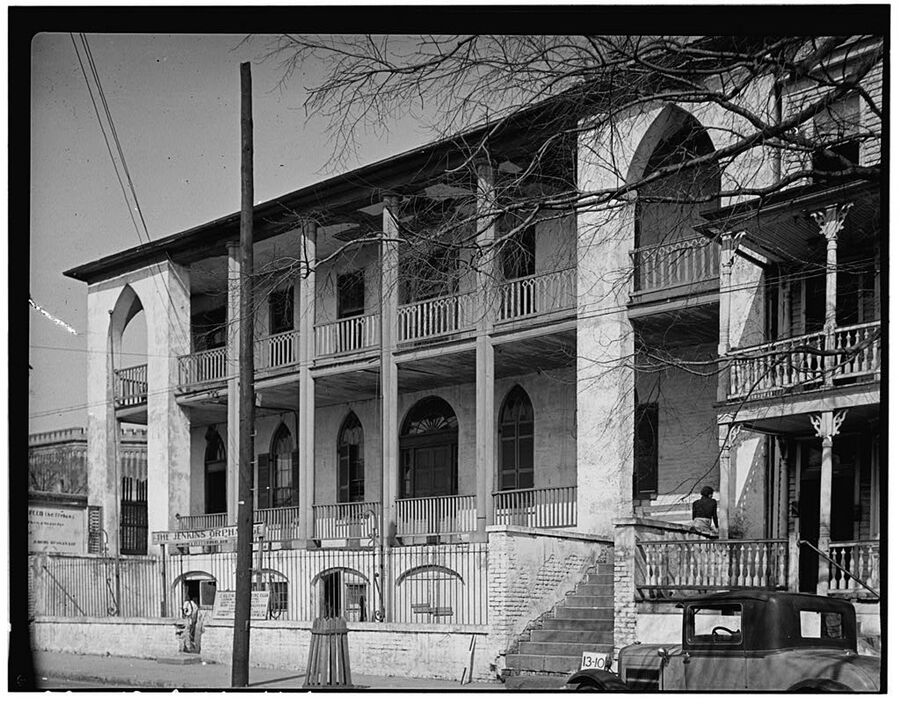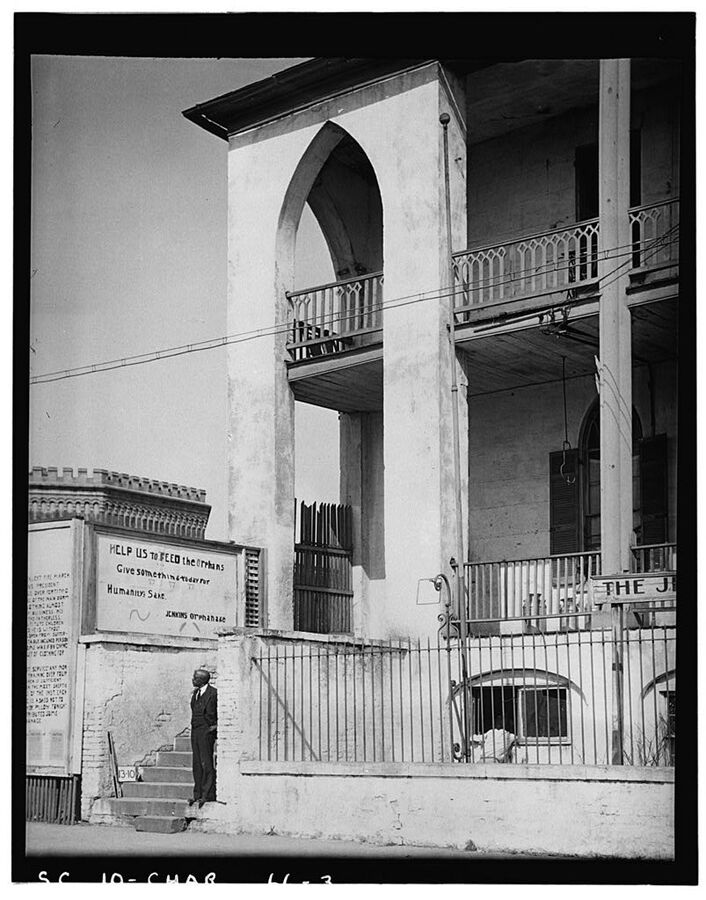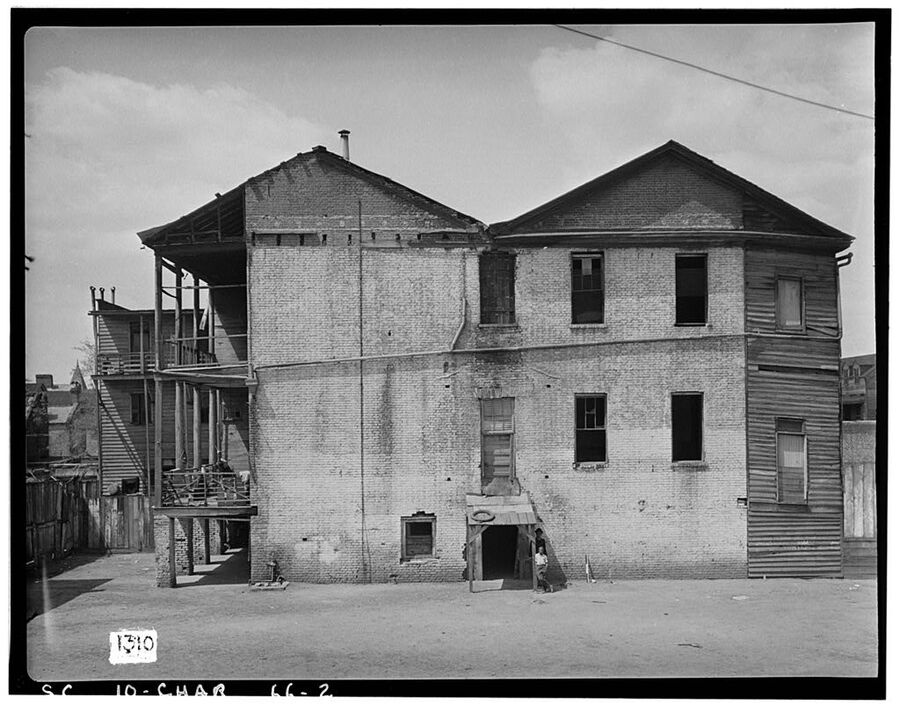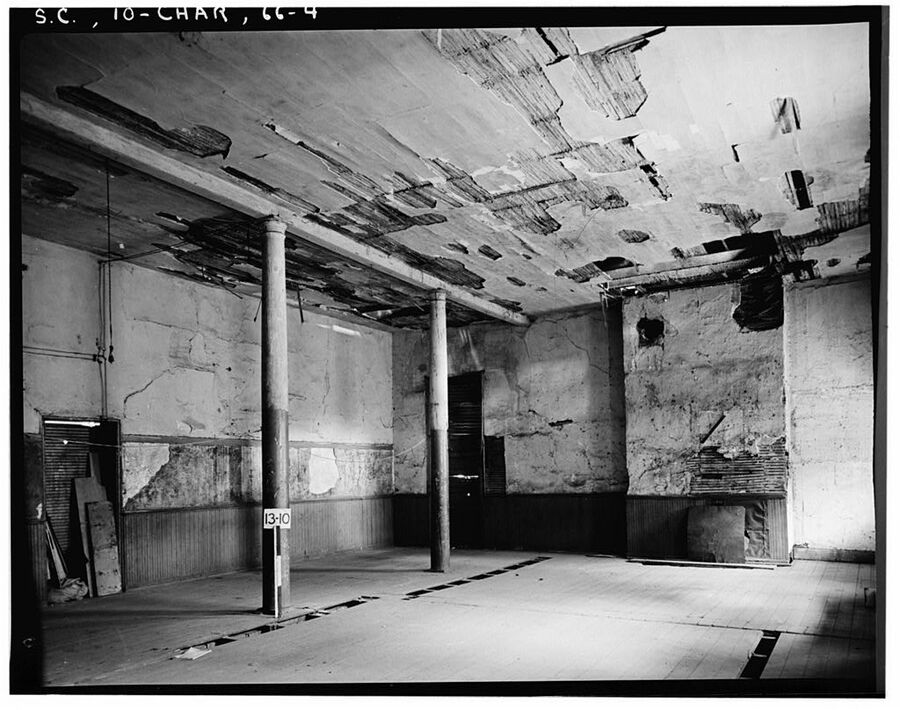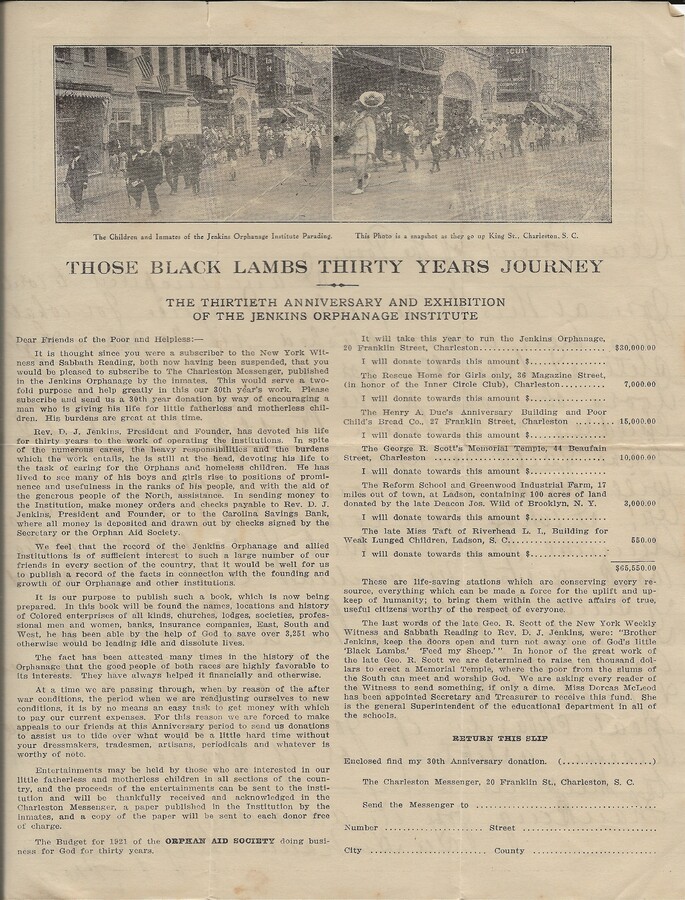Jenkins Orphanage and Jenkins Orphanage Band, 20 Franklin Street
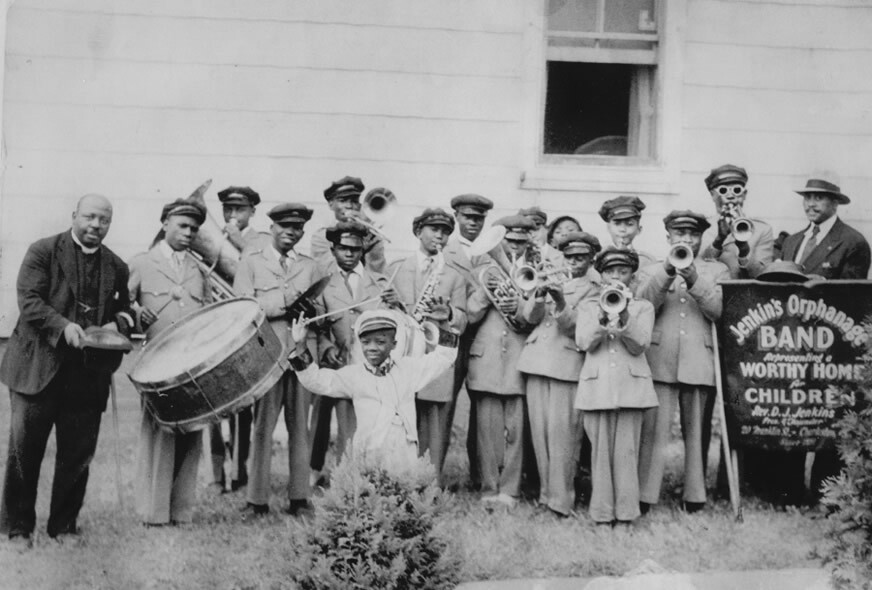
The Jenkins Orphanage, currently known as the Jenkins Institute for Children, was established in 1891 by Rev. Daniel Joseph Jenkins in Charleston, South Carolina.
The Jenkins Orphanage, currently known as the Jenkins Institute for Children, was established in 1891 by Rev. Daniel Joseph Jenkins in Charleston, South Carolina. Jenkins initially began his career as a businessman and Baptist minister. In his work, he often encountered homeless African American children in the streets, which led Jenkins to organize and operate an orphanage. The original site of the orphanage was on 660 King Street. In 1893, the orphanage moved to the Old Marine Hospital at 20 Franklin Street. This National Historic Landmark was designed by “America’s first architect,” Robert Mills, and served as the home of the orphanage until 1937. The present-day Jenkins Institute for Children is in North Charleston, South Carolina.
The orphanage took in large numbers of musical donations such as drums and horns. Jenkins also hired two local Charleston musicians, P.M. “Hatsie” Logan and Francis Eugene Mikell, to tutor the children in the skills of musical performance. After obtaining permission of the mayor, police chief, and Chamber of Commerce, the band’s humble debut was in the streets of Charleston in the early 20th century. The Jenkins Orphanage Band, wearing discarded Citadel uniforms, performed throughout the United States. They played in the inaugural parades for Theodore Roosevelt and William Taft. As many as five Jenkins Orphanage bands toured simultaneously during the 1920s. The band however ceased to exist in the 1980s due to financial and logistical difficulties.
When Reverend Jenkins died in 1937, it considerably weakened the spirit of the orphanage. Prior to this, the orphanage suffered a devastating fire, nearly destroying the entire second floor in 1933. The blaze became an excuse for the City Council to force the orphanage out of the neighborhood where it had been operating. Unfortunately, there were also alarming accusations that Rev. Jenkins “may have profited disproportionately” from the funds generated by the orphanage bands, according to Mark Jones’s book, “Doin' the Charleston.” Under pressure after her husband’s death, Ella Jenkins (the Reverend’s second wife) struck a deal with the city of Charleston and surrendered the property at 20 Franklin Street. In return, the city built a new facility for the orphanage away from downtown. Today the former Marine Hospital is occupied by the City Housing Authority and the American College of Building Arts, and the renamed Jenkins Institute for Children remains in operation for young girls and women in North Charleston.
The Jenkins Orphanage Band is a key legacy of the institution. In 2003, a 10-minute Newsreel feature about the band, filmed on November 22, 1928, was entered into the United States National Film Registry. William “Cat” Anderson, who played trumpet in Duke Ellington’s Orchestra, and Freddie Green, who was a guitarist of the Count Basie Orchestra, are but a few of the notable alumni from the Jenkins Orphanage Band. The orphanage was responsible for providing numerous children with another chance at a new beginning in post-Reconstruction Charleston. The orphanage served more than “just a place to sleep and [to receive] a hot meal” for these children; it served as a welcoming home. Children were set for success in their lives, which was very important for African American children as they faced an uphill battle of systemic racism and prejudice.
Images

